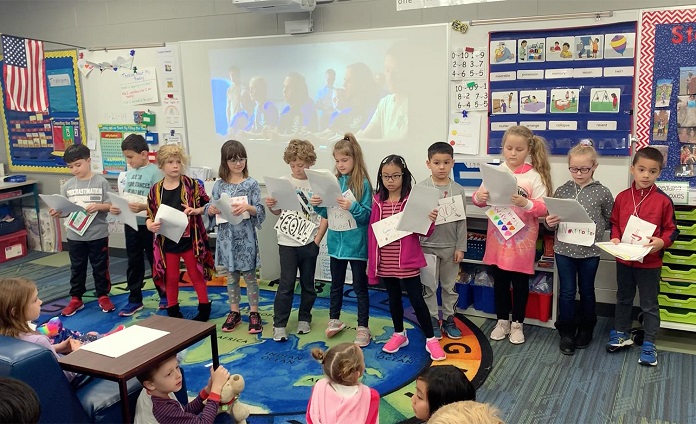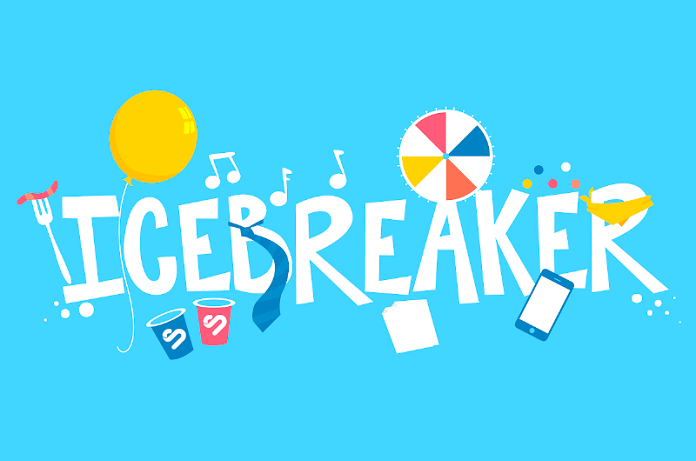Icebreakers for kids are activities, games, or exercises designed to help children who are members or participants of a class, group, team, or event to warm up, interact, integrate and know each other.
Icebreakers will always prove useful no matter the age range of the people or the setting of the environment involved. Icebreaker questions come in handy for various reasons that may range from dispelling first-time nerves to getting to know each other better. From professional settings like schools and seminars to informal events like weddings or kids’ parties, everyone needs icebreaker questions to spark relationships.
It is even more important for kids considering they are quite impressionable and seek validation from their peers. The need to get along with new classmates is vital for a kid that just moved to a new school, the lonely kid that stays away from others due to poor social skills, etc. As a result, icebreaker activities and questions during class sessions are necessary tools to foster relationships and help cooperative learning.
Categories of Icebreaker Questions for Kids
As earlier mentioned, icebreakers are quite essential for kids for a variety of reasons. Creating a positive class environment where everyone gets along with another is achievable with icebreaker questions. The ease of organizing icebreaker activities and questions in a classroom vary from one school group to the other.
It is considerably easier to organize and introduce icebreakers to elementary school students than middle school goers. It is even more challenging with high school students preparing to go off to college. For this reason, it is better not to ask generic icebreaker questions.
By tailoring your icebreaker activities to different class groups’ suitability and needs, you guarantee more positive outcomes.
Child-friendly Icebreaker Questions for Elementary School Students

Elementary school students are still children who are easily impressed and distracted. Studies show that elementary school students can display certain misbehaviors if the teacher-student relationship is not strong. Icebreaker questions that get them to reveal more about themselves and relax are the fastest ways to build a strong rapport with the kids.
Children, especially those around the ages of elementary school kids, are always up for a bit of fun. Setting up your icebreaker questions as a fun activity means you have their attention and participation. If you are unsure about the nature of the questions to ask or the topics, the examples below should do the trick for you:
- Who is your favourite superhero, and why?
- What is your favourite after school activity, and why?
- What book do you enjoy reading the most for your bedtime?
- How many books were you able to complete over the summer?
- If you had the chance to be any animal, what would you be and why?
- Do you have any pets?
- What pet do you consider your favourite?
- What cartoon character do you think will be your best friend?
- Do you look more like your mom or your dad?
- If you could pick a name for yourself, what would it be?
Icebreaker Questions for Middle School Students

Middle school students are approaching their teens, while the oldest among them are already there. It means they are a bit wiser, more self-conscious, and harder to please. The transition from elementary school to middle school might also leave them more vulnerable to emotional and behavioral challenges.
Students in the middle school class range still seek validation and acceptance from their friends. It means they will act in a way they think is acceptable to the people they look up to. To get them to open up and participate in icebreaker questions, you must ask questions that resonate with what their age group enjoys doing.
While some icebreaker questions for elementary kids might still work with middle school kids, some might find it too immature and a tune out. Make the questions fun, trendy, and suited to their hobbies. Below are some examples:
- Which YouTuber is your favorite, and why?
- If you could go to any middle school in any TV series or movie you watched, which would it be?
- Would you rather be a crowd pleaser or person, or you’d rather stand out and be a loner?
- Can you go one week without your mobile phone?
- What is the longest screen time you have ever done? It could be for streaming movies, series, or gaming.
- If you were to start your own YouTube channel today, what would you name it?
- Who is your current celebrity crush?
- What do you think is the biggest issue for people around your age?
- If you had the chance to remove one subject from the curriculum, what would it be, and why?
- What is the one activity you wish middle school could copy from elementary school?
Icebreaker Questions for Teens and High School Students

High school students are full-blown teenagers within the age group of 14-18. It is the age where disruptive behaviors are rampant, and kids often act out. High school students are already thinking of life as adults and are increasingly learning how to be independent.
There is a high chance they are not interested in the silly and ‘fun’ concept of answering icebreaker questions. To pique the interest of these age groups, make the icebreaker questions as interactive as possible. Make it less of a ‘game’ and more of a discussion. They are curious and fearful about what the future holds for them after high school and this can be harnessed into a brief discussion.
Getting the opportunity to answer questions about this topic would be a welcome distraction. Hearing others’ answers and comparing them with their fears and anxiety can help them relax and open up more. Here are some examples of questions to ask high school students to engage them below:
- Can you recall the best advice anyone has ever given you?
- If money was not an issue, what college would be your first choice?
- Is there a book you read that had an impact on how you viewed your future?
- If you had one month to engage in an activity without your mobile phone, what would this activity be?
- What is the most important thing you think older people should know about people of your generation?
- What are you most excited about for the New Year?
- If you were to author a book, what would the book be about?
- Are you afraid or excited about what the future holds for you?
- What is your biggest fear?
- Will you ever do volunteer work if you get to college?
Some Random Icebreakers for Kids

You can ask kids random icebreaker questions in different innovative and creative ways. There are broad topics you can base your questions on that would incite interest from the kids. Here are three examples of different icebreaker questions under several topics.
Entertainment Icebreakers for Kids
- What is your favourite music genre?
- Did you have a favourite Disney character?
- What video game can you play for hours without taking a break?
Sports Icebreakers for Kids
- Who do you think is the greatest professional athlete of all time?
- What sport do you excel in the most?
- If you could add any sport to the Olympics, which would it be?
Education and Life Goals Icebreaker Questions for Kids
- Do you have a favourite subject?
- What career do you think is perfect for you?
- Do you enjoy coming to school, or it feels like a burden?
Personal Icebreaker Questions for Kids
- What hospital were you born?
- What nickname do they call you at home?
- Who is your most loved family member?
General Icebreaker for Kids
- What do you enjoy doing the most as an extracurricular activity?
- If you had superpowers, would you be a villain or a hero?
- Would you rather travel by plane, a boat, or train to your destination?
Why Are Icebreaker Questions Important for Kids?
It is the goal of every teacher to have a classroom full of positivity. It is a source of joy when this positivity translates to success during learning activities. Kids can excel in various learning activities when they feel relaxed and at peace in a classroom environment.
By engaging in icebreaker questions, this process is fast-tracked, and both teachers and kids enjoy the rewards. Additionally, icebreaker questions help kids know their peers better and make them have a sense of belonging. This sense of belonging comes from knowing that they are not so different from others and share a lot of similarities with people in their age group.
Students learn better when they are assured their learning environment is positive and full of support. According to a study from the University of Salford, this effect can be as high as 25%. A positive environment is mostly where kids feel a sense of camaraderie and trust others. One of the fastest ways to promote and build a strong bond is by engaging in icebreaker activities, and this has been of immense help to kids.
Kids Ice Breaker Questions are Primarily Aimed at Helping Children to Interact More
Icebreaker questions are questions posed to strangers or people to get them to open up more and begin learning more about each other. An icebreaker question serves to remove the awkwardness, anxiety, or whatever negative feeling might have been prevalent initially.
The question could be personal, professional, or about various topics. You can use them to lighten the mood in a situation where an environment was becoming stuffy and tense. Posing icebreaker questions can diffuse the tension and restore light-hearted banter to the mix. They come in handy in almost every setting and are usable by virtually every individual. The more you use icebreaker questions, the better you become at them.
